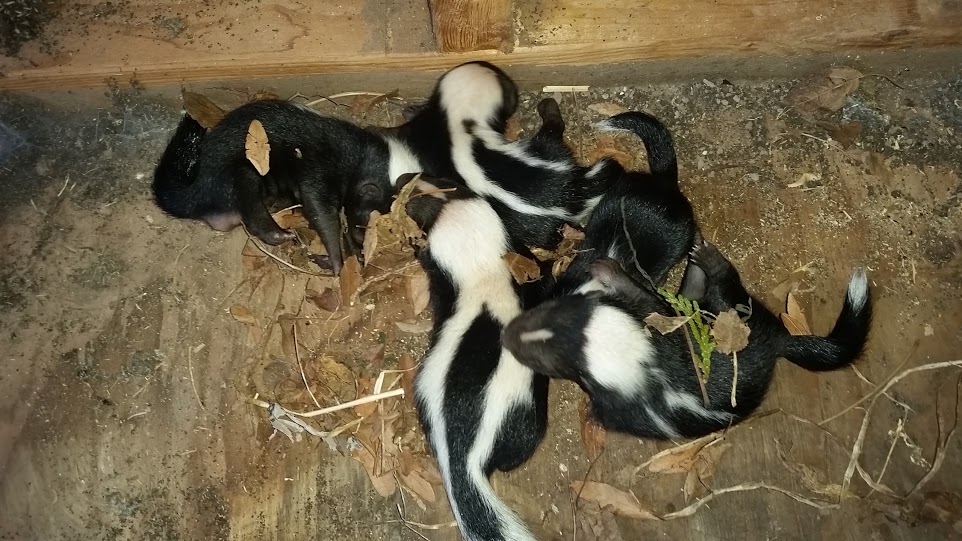Wild animals, including skunks, sometimes seek shelter in human habitations, making nuisances of themselves. Humane skunk removal is in the animals’ interests as well as yours. However, you shouldn’t be too angry or fearful towards the skunks on your property. Their smelly secretions can cause short-term inconvenience, but they don’t seek to harm humans and can actually be of benefit. Here are some reasons why skunks are worthy of your respect and appreciation.
They Are Gentle Creatures
Skunks are not aggressive animals at all. They are actually very docile and shy creatures that would prefer to run away from a fight whenever possible. Skunks don’t go around looking for people or other animals to spray. They don’t have to. Their distinctive black-and-white markings send a warning to potential predators and well-meaning humans alike to stay away.
The problem is that skunks cannot understand humans’ intentions, so they may feel threatened by you even if you do not believe that your behavior toward them is aggressive. Skunks are nocturnal, so it is rare to see them during the day, but if you do see one, try to stay calm and keep a respectful distance. Be careful walking out your front door at night, or you may come across a skunk unawares.
They Only Spray as a Last Resort
After a skunk has sprayed, it takes its body over a week to replenish its supply of the smelly chemical, during which time a skunk is virtually defenseless. Therefore, skunks conserve their spray and only use it when they feel they have no other options. A skunk that sees an escape route prefers to take advantage of it. It is only when they feel cornered that they think about spraying.
Usually, a skunk usually gives ample warning of its intentions before using its spray:
- Stamping its feet
- Shaking its tail
- Standing on its front legs in a “handstand”
- Bending to the side to aim its spray
If you see a skunk performing any of these behaviors, you should get away as quickly as possible, as they can spray up to 20 feet.
People tend to stay from skunks anyway and are more likely to get sprayed by startling a skunk when neither was aware of the other’s presence. Unfortunately, it is a different matter for dogs. Canines present their hindquarters to one another as friendly overtures, so dogs may misinterpret a skunk’s body language and get sprayed as a result.

They Eat Harmful Organisms
Skunks are omnivores, meaning that they feed on both vegetation and animals. While they can hunt snakes and birds, they mostly feed on insects and other small invertebrates. Their favorite foods include grubs, grasshoppers, and beetles, all of which can be pesky garden pests. For example, skunks like to eat invasive biting beetles. By doing so, they help protect beneficial insects such as native ladybeetles that the biting beetles feed on.
Skunks are also scavengers that will eat the carcasses of dead animals if they come across them. This helps to clean up carrion and prevent the proliferation of disease-causing bacteria. In this way, skunks are garbage collectors of sorts, helping to keep their habitats clean.
Skunks are known more as foragers than hunters. However, they have been known to kill and eat rodents such as mice, helping to keep these rodents out of your home. Skunks also eat snakes, and they can help keep the population of venomous snakes under control. They are immune to snake venom and so suffer no ill effects from eating them.
Humane Skunk Removal Protects Both People and Animals
While it is good to have skunks in your area, you do not necessarily want them on your property. As a provider of wildlife control in Milwaukee, Skedaddle removes creatures like skunks without harming them. We also clean and decontaminate areas where they have been, which is especially important if a skunk has sprayed. Find out more about the services we offer in Milwaukee.



